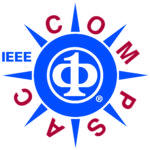QUORS 2023: The 17th IEEE International Workshop on Quality Oriented Reuse of Software
Technical Program
*= in-person presentation in Torino
Coevolution Index: A Metric for Tracking Evolutionary Coupling*
Huseyin Yapici and Hasan Sozer
A test case prioritization based on genetic algorithm with ant colony and reinforcement learning improvement*
Yu Yang, Lu Wang, Na Cha and Hua Li
Towards Improving Accessibility of Web Auditing with Google Lighthouse*
Thomas McGill, Oluwaseun Bamgboye, Xiaodong Liu and Chathuranga Sampath Kalutharage
Commit Classification Into Software Maintenance Activities: A Systematic Literature Review*
Tjaša Heričko and Boštjan Šumak
Business Process Representation Analysis in the RPA Context*
Virginia Niculescu, Cristina-Claudia Osman, Camelia Chisalita-Cretu and Adrian Sterca
Locating Procedural Steps in Source Code
Shinpei Hayashi, Teppei Kato and Motoshi Saeki
A Preliminary Critical Review of the Impact of Three Popular Development Practices on Source Code Maintainability*
Daniel Knight, Stephen Torri and Tanmay Bhowmik
Towards Better Online Communication for Future Software Development in Industry*
Masanari Kondo, Shinobu Saito, Yukako Iimura, Eunjong Choi, Osamu Mizuno, Yasutaka Kamei and Naoyasu Ubayashi
Classifying Packages for Building Linux Distributions
Qi Jing, Lian Yu, Lei Zhang, Haolin Xue and Zheng Liu
A Catalog for Historical Soundscapes Requirements*
Joao Araujo, Armanda Rodrigues and Inês Menezes
Determining the Relative Importance of Features for Influencing Software Product Similarity Matching*
Mike Mannion and Hermann Kaindl
Software reuse has been one of the most effective paradigms for building software systems and applications for decades. Recently, the rapid and fundamental advances in computing technologies have been driving the role and scope of software systems to new levels. A number of new types of software systems are emerging, among which microservice oriented systems, pervasive computing, cloud computing, AI-driven smart systems and big data applications are eminent examples. The advent of these emerging systems has raised the level of software reuse to services, large-scale components or agglomeration of components in more challenging context which is pervasive, service-oriented, AI-driven and trustworthy. Systematic and large-scale reuse of reusable assets at multiple development levels is improving the efficiency of software development activities significantly in terms of cost and time.
However, previous research in software reuse mainly focused on the functional aspect of a system, tended to ignore or treat the quality aspects trivially. Modern computing models tend to be globally distributed, ubiquitous, highly secure, intelligent and dynamically adaptive. These systems, such as smart/pervasive systems, cloud services, microservice-based systems and big data applications, have imposed more rigorous quality requirements on software reuse technologies. Today in the “smart IoT era”, it becomes a great challenge to meet the new requirements of emerging software systems and meanwhile enjoy the benefits of substantial software reuse.
Recently, the research community and industry have been aware of the above weakness and much work has been ongoing. In this workshop we wish to bring together researchers and practitioners to share latest research results, advances and practical experiences under the banner of “Quality Oriented Reuse of Software for Emerging Software Systems in IoT and AI Era”. The workshop will act as a forum for active discussion, idea stimulation and communication.
Workshop theme and scope:
The workshop will bring together researchers and developers from academia and industry for advancing the methodology and technology of software reuse which emphasizes meeting strict quality requirements, such as dependability, agility, security and performance, particularly in the context of emerging types of software systems. The workshop seeks new approaches, system architectures and tools that facilitate the quality aspects of software reuse technologies.
Topics of interest include, but are not limited to:
- IoT-based pervasive systems;
- Microservices and reuse;
- AI-driven smart systems;
- Machine learning based software engineering
- Architecture and models for Big Data applications;
- Architecture and models for IoT applications;
- Trustworthiness and security models
- Trustworthy software reuse methods;
- Dependable component-based systems;
- Software product lines;
- Quality aspects of design patterns;
- Software evolution;
- Software quality metrics and testing;
- Model-driven software engineering;
- Component and service repository;
- Service Oriented Architecture;
- Cloud computing services: SaaS, PaaS and IaaS;
- Quality of clouds services;
- Reuse in safety critical systems;
- Reuse in service and component based Enterprise Systems;
- Reuse in embedded software systems;
- Open source software reuse;
- Case studies and experience reports.
Paper Templates
IEEE Paper templates are available in MS Word 2003 and LaTex. All submissions must use US 8.5×11 letter page format.
Important Dates
Main Conference/Symposium
Main conference/symposium papers due: 15 January 2023Extended to 15 February 2023
Notification: 7 April 2023
Camera-ready and registration due: 7 May 2023 Updated: 18 May 2023
Journal then Conference Submissions
Due date: April 7, 2023
Notifications: April 30, 2023
Workshops, Fast Abstract, SRS Programs
EXTENDED: Workshop papers due: 21 April 2023
UPDATED: Notifications: 7 May 2023
UPDATED: Camera-ready and registration due: Updated: 18 May 2023
Submission Link
Please submit your paper on EasyChair
IEEE Conference Publishing Policies
All submissions must adhere to IEEE Conference Publishing Policies.
IEEE Cross Check
All submission will be screened for plagiarized material through the IEEE Cross Check portal.
Workshop Organizers
Xiaodong Liu
Edinburgh Napier University, UK
Email: x.liu@napier.ac.uk
Hongji Yang
Leicester University, UK
Email: hongji.yang@leicester.ac.uk
Program Committee
Oluwaseun Bamgboye, Edinburgh Napier University, UK
David Bell, Brunel University, UK
Laizhong Cui, Shenzhen University, China
Qing Duan, Yunnan University, China
Marcelo Fantinato, University of Sao Paulo, Brazil
João M. Fernandes, University of do Minho, Portugal
Barbara Gallina, Mälardalen University, Sweden
Pooyan Jamshidi, South Carolina University, USA
George Kakarontzas, University of Thessaly, Greece
Soo Dong Kim, Soongsil University, Korea
Hua Li, Inner Mongolia University, China
Jingyue Li, Norwegian University of Science and Technology, Norway
Xiaodong Liu, Edinburgh Napier University, UK
Qi Liu, Edinburgh Napier University, UK
Richard Millham, University of Bahamas/ Durban University of Technology, Bahamas
Dr.Vo Ngoc Phu, Duy Tan University and Nguyen Tat Thanh University, Viet Nam
Salah Sadou, University of South Brittany, France
Francois Siewe, De Montfort University, UK
Yingchun Tian, Changzhou University, China
Guifa Teng, Hebei Agriculture University, China
Emiliano Tramontana, Universit`a di Catania, Italy
Hongwei Wang, Zhejiang University, China
Kevin Yang, Chinese Academy of Science, China
Lu Zhang, Beijing Union University, China
Wei Zheng, Northwest Polytechnic University, China
Shikun Zhou, Portsmouth University, UK
Vijay Walunj, University of Missouri-Kansas City SCE, USA
Chen Li, Aalborg University. Danmark

